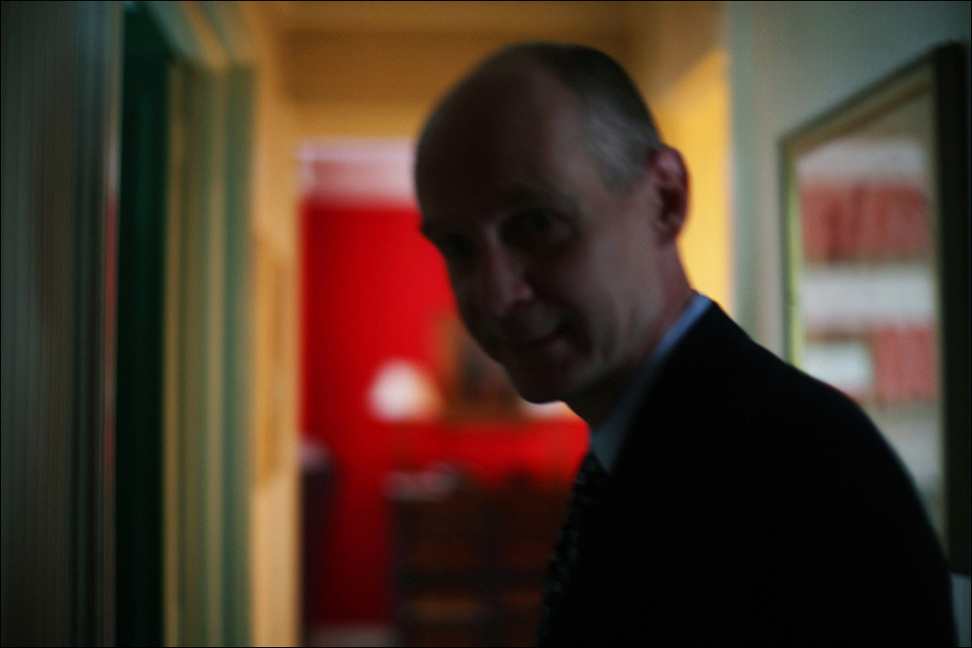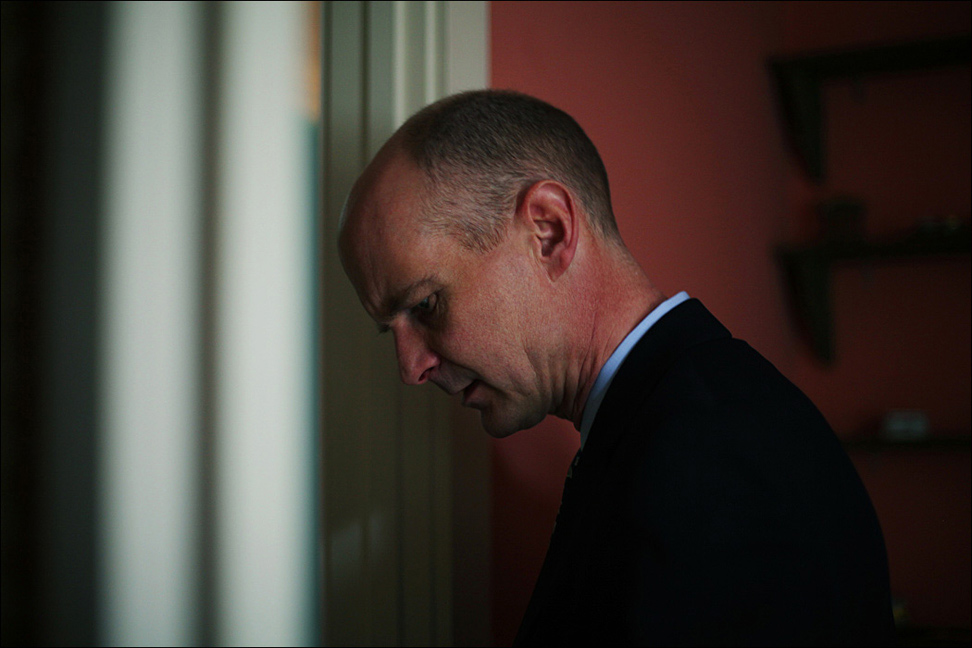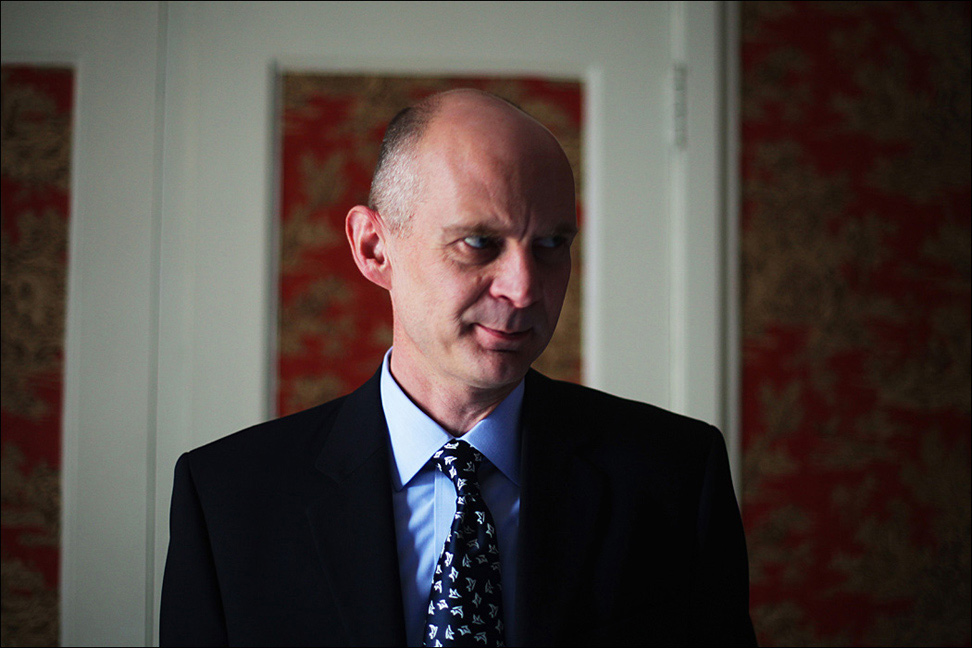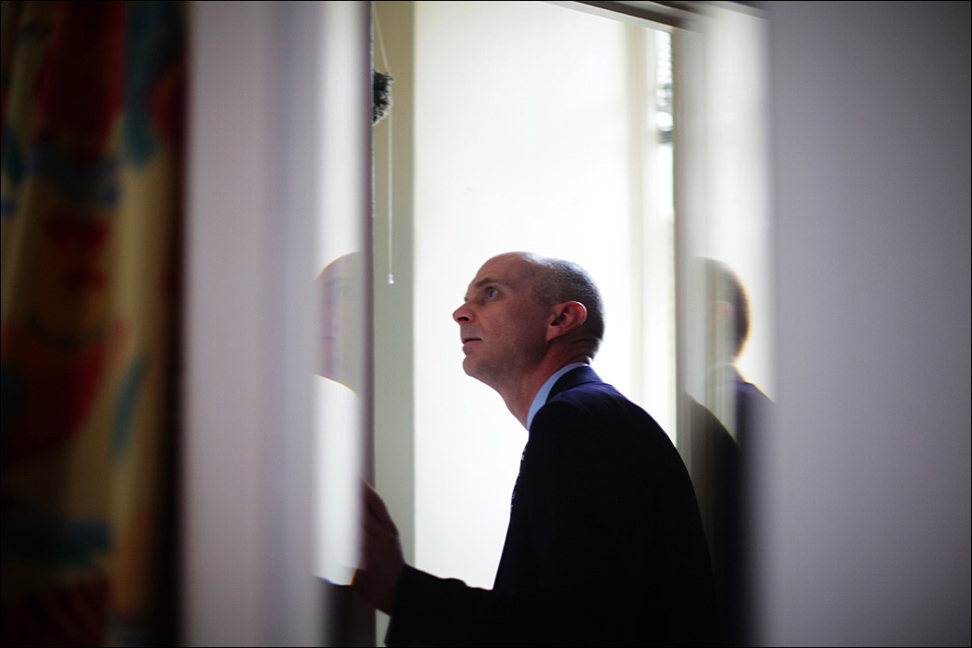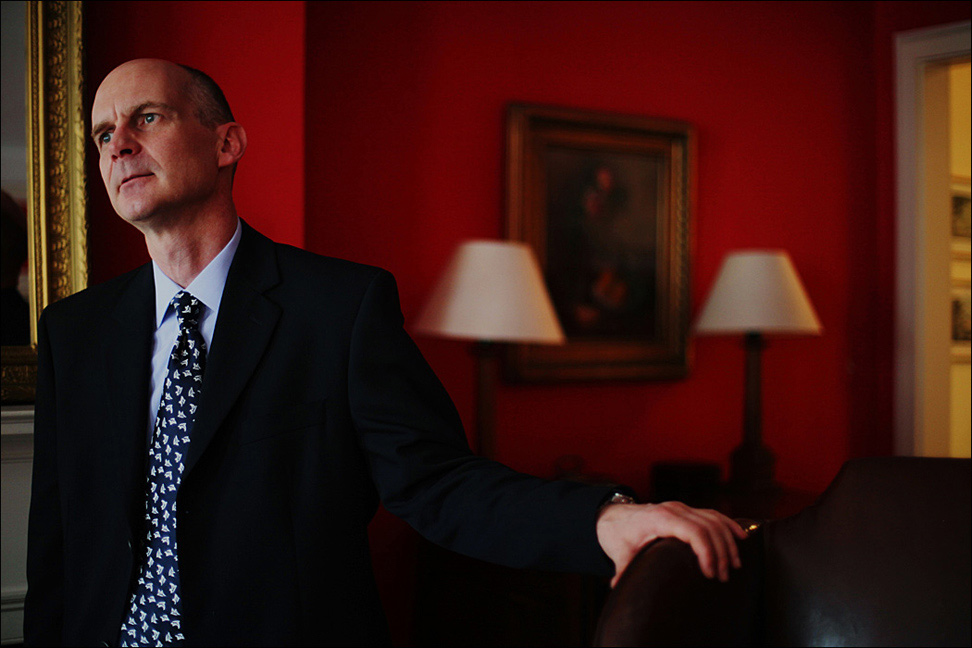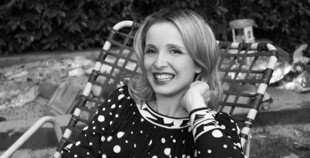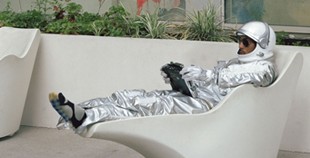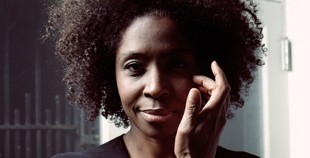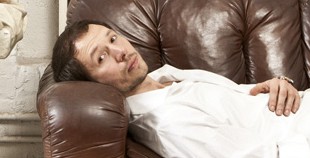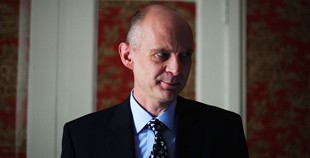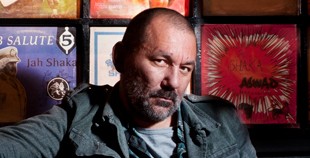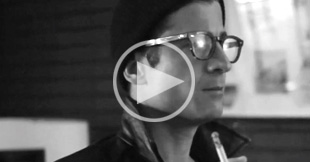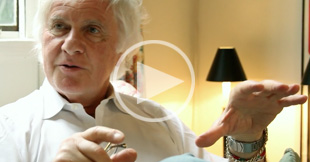
Butler to Royals and Brooke Astor Divulges the Secrets Of Great Domesticity
Interviewed by Aaron Peasley / Photographed by Aeric Meredith-Goujon
Popular culture has always had a penchant for butlers, those fictional, invariably British exemplars that quietly roam the halls of fictional homes from Batman’s Wayne Manor to Downton Abbey, the breakout drama series set in 20th century England.
With his tall thin frame, shaved head and navy Brooks Brothers blazer, Chris Ely, one of the most prominent real life butlers around today, certainly fits the physical stereotype. But with his affable demeanor, absence of hauteur and smooth English accent, adapted by almost two decades in the United States, it’s apparent that Ely has little in common with the classic frequently affected archetypes.
Born in Germany and raised in Canterbury, England, Ely began his service career more than three decades ago. Over the years, he has seen it all: heads of state behaving badly, A-list stars with their guard down and, perhaps worst of all, rock stars behaving impeccably. His work has taken him across the globe – from the ancestral homes of royalty, to the Riviera pleasure palaces of newly minted music industry millionaires.
It all began with an “extremely young looking,” Ely reporting for duty as a footman at Buckingham Palace some thirty years ago. “In the beginning it was mind-blowing,” he recalls, “I was offered the job when I was seventeen, but I had to wait until I was eighteen to begin. I celebrated my birthday on the grounds of Buckingham Palace and had my first pint of beer that day.”
The young Brit’s path to the service world began with a course in hotel management where he learnt the ropes of running a five star hotel. While he became proficient in knife skills and the grueling demands of running a kitchen, it soon became clear a life behind the scenes in a hotel restaurant was not for him. “One day I was working in the dining room and I was approached by the principal, who was impressed by the way I was doing things,” Ely explained, “he asked if I would like a job working in the British Embassy in Belgium or Buckingham Palace. It was an opportunity I just couldn’t turn down.”
Thrust into the ultra-rarefied world of Buckingham Palace in Thatcher-era Britain proved to be a culture shock for Ely, but one that he took in his stride. “It was strange. One has no real sense of true wealth except for what you’ve seen in magazines and television. It’s quite a shock to the system. These are actually living, breathing places and the sheer scale of the place is absolutely daunting,” he recalled. “Not long after I began working there, Charles and Diana were married. It was a very exciting time to be there,” he says. “I’m not particularly star struck, but it was incredible to see some of the people who would walk through the doors of the palace during that time. Princess Grace and Diana sitting next to each other, for instance.”
“Buckingham Palace is actually a fascinating place to experience,” Ely says, “It’s like a living city with its own post office and police stations and everything in between.” With its inviolable rituals, customs and arcane protocol, it could also be an overwhelmingly stodgy place and Ely began to grow restless. “It was overwhelming at times and the service side could be very hierarchical,” Ely said. Throughout it all, Ely perfected that most essential of service traits: staying cool when all hell breaks loose. “I never lost it in public,” he says, ”even though it could be extremely trying at times.”
Buckingham Palace is the kind of place where employees stay until they retire, but Ely was eager to see the world. In 1985, he made his way to Los Angeles, trading British royalty for the Hollywood kind. “I got a call asking me to come out to LA and I was up for the adventure,“ he says. “It was a culture shock – absolutely. I moved to California to work with a figure in the film world. Needless to say, it was rather a change from Britain.”
Over the years, however, Ely grew to embrace the West Coast lifestyle. “The first challenge after relocating to Los Angeles, was learning to speak LA – otherwise no one would understand me at all,” he said, “ultimately I grew to really love it – and I developed my own routine of navigating the city to avoid the worst of the gruesome traffic.”
Fast forward to 1997. After resigning from an ultimately disastrous post with a prominent rock and roll manager who “wanted to live a certain lifestyle, but not pay for it,” Ely relocated to the East Coast to work with Brooke Astor, famous philanthropist, social lioness and one of the last living links to the Gilded Age. “She represented all of that and still lived it,” Ely said. ”She wouldn’t just walk by you,” he recalls, “she knew all the guard’s names at the Met. She treated everyone with kindness and respect. As a person, she was absolutely wonderful.”
Ultimately the job turned out to be an unhappy one, as Astor’s health failed and he became embroiled in the high profile case that developed around the ailing Astor and her son Anthony Marshall. “I have a lot of mixed feelings from that time,” Ely explains, “Everything from thoroughly enjoying the role to feeling immense pressure about what was going on.” Needless to say, for someone who had built a career on discretion, appearing in the New York Post on a daily basis was not part of the rulebook.
Today, Ely has moved on. While he may not admit as much, he is now contemplating doing that most quintessentially American of things and building a brand. “I want to share some of the insights and knowledge I’ve acquired throughout my career,” he says. Among his most recent roles is a position with the French Culinary Institute where he inaugurated the Estate Management Studies Program; a kind of intensive for those wishing to enter the lucrative private service industry or acquire the skills to run a large household.
Ely is also putting together several publishing projects, where he hopes to impart some of the tricks of the trade. “For years, I’ve taken it for granted that everyone knows what I do – basic things like how to get wax out of a blazer or remove red wine from a tablecloth – but many people don’t. These are basic things, but very important things that I’d like to share,” he explains.
Even though Ely has witnessed a tremendous amount over the years, he’s resisted offers to write a tell-all. “I have no interest in talking about my individual employers,” he says, “It’s weird. I didn’t utter a word to the press for thirty years. Today I’m more interested in sharing my knowledge, but if I were to ever write about some of the things I’ve seen it would certainly be a very good book. What I’ve heard, what I’ve seen and how famous people really feel about each other. I’ve seen everything.”
Rather than another confessional added to the bookshelves, Ely believes what we really need is a little more guidance on the home front. “Interior designers and architects can make a space look beautiful, but do they know how things work?” Ely asks. Consumer desire, he believes, is highly paradoxical; seducing us with objects and environments we aren’t equipped to maintain. “Today we live in a visual culture. People select things with no real regard for how it will actually fit within their lives,” he says. “My book will be for home owners. It’s for people who don’t have a staff. Rather than have people proceed to promptly and unnecessarily destroy their houses, I want to guide them towards what’s best for them.”
Questioned about one of the main pieces of wisdom he has acquired over his career, Ely observes: “being rich and living well are two very different things.” In today’s era of stratospheric new wealth creation, he believes that gap is widening. “A lot of the old guard, the blue bloods if you will, use to do the very same thing day in, day out. People used to travel on steam ships and make social engagements months in advance,” Ely says, “Now it’s completely different. People board private jets at the drop of a hat. It’s changed tremendously.”
Fame and fortune, Ely believes, mean very little if one doesn’t know how to live well. “I’ve learnt a lot about the rich and famous throughout my career,” he says. “People spend their entire lives wanting to be somebody else or looking up to people who may not deserve it. The truth is, if you’re polite and live with integrity, you’ll get far better service. To be anonymous is such a joy. You can have gazillions of dollars, but you can live so poorly.”
